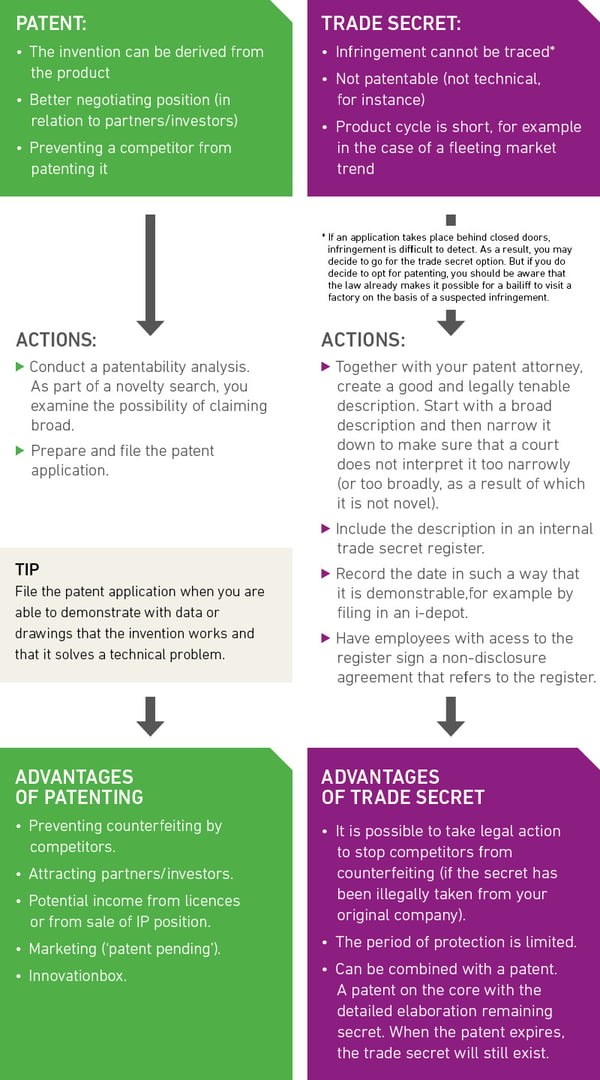Your roadmap from innovation to patent
 How do you decide whether or not it makes sense to apply for a patent? Protecting an innovation with a patent is often a very sensible thing to do, but there are other options out there. In this blog I’m going to give you a clear step-by-step plan to help you decide what to do when it comes to innovating and patenting.
How do you decide whether or not it makes sense to apply for a patent? Protecting an innovation with a patent is often a very sensible thing to do, but there are other options out there. In this blog I’m going to give you a clear step-by-step plan to help you decide what to do when it comes to innovating and patenting.
Step 1: Decide on your business strategy
Decide on the revenue model for your innovation. This is what you have to keep in mind when considering whether or not to patent.
Step 2: Decide on your IP strategy
Your IP (intellectual Property) strategy will underpin your revenue model. Both now and in the future. The IP strategy has to protect your current business as much as possible, but also has to protect it as you develop further.
Step 3: Align your R&D activities
You align your R&D activities with your business strategy and IP strategy. Not the other way around. The goal is to develop innovations in which you can see a revenue model in the future and therefore want to protect.
Apply for a WBSO subsidy for R&D projects. This can also potentially give you access to the Tax & Customs Administration's innovatiebox
Step 4: Monitor your R&D results
Monitor newly developed concepts to identify potential IP. Think about solved technical problems and improvements and test these against your IP strategy.
TIP: Apply for a patent first before publishing or going to market. Otherwise it will no longer be novel and inventive which are the conditions for obtaining a patent.
Step 5: Decide whether to patent or not to patent.
The innovation fits within your business and IP strategy and there is a good chance there are commercial advantages to protecting it.

Don't leave it too late to get a patent attorney involved
As you can see, it is not straightforward to decide whether or not to patent. It starts with deciding what you will and will not spend time on while innovating. And once that is clear, important questions about patenting await. Get a patent attorney involved in these processes at an early stage. This will increase your chances of making the right decisions. A patent attorney is both a technical and legal expert and is therefore able to look at the issue with you from all angles.
If you would like to discuss your IP strategy then please get in touch with me. I would be happy to share my thoughts on this with you.

About the author
I’ve been a patent attorney at EP&C since 2010, with a background in bioprocess engineering and a Ph.D. in innovation management. My work bridges science, business strategy, and legal thinking,...
More about Mark >